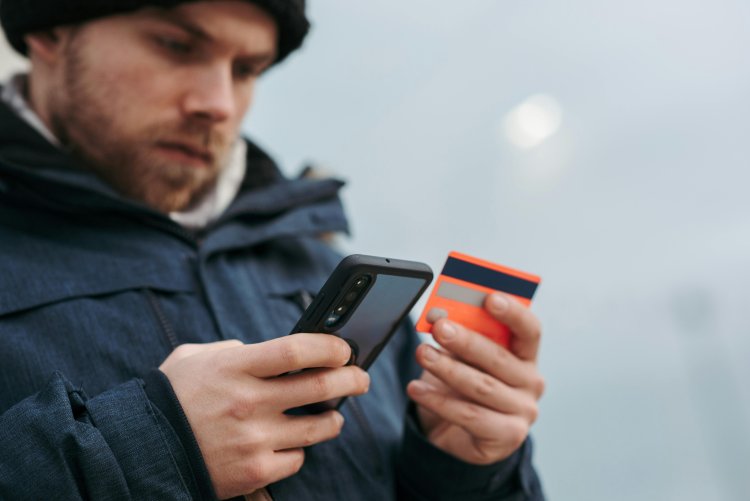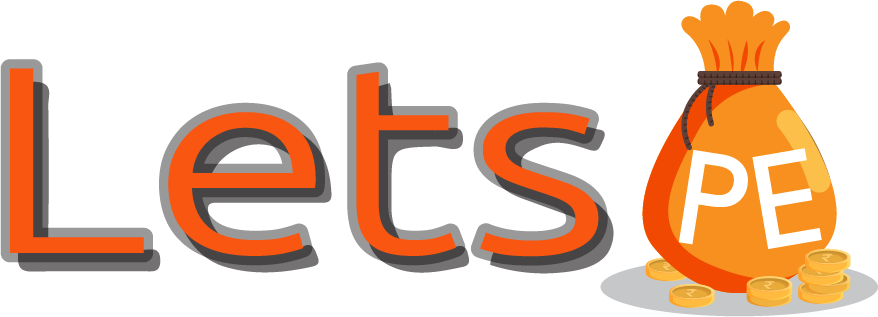Navigating the World of Mobile Wallets: A Comparison and Best Practices
Mobile Wallets are another step in the enhancement of cashless payments. Everyone today is using the mobile wallet facility.

Mobile Wallets are another step in the enhancement of cashless payments. Everyone today is using the mobile wallet facility. Letspe Payment gateway provides a superb payment gateway service. You can connect with them via their linkedin account - @letspeofficial
What are Mobile Wallets?
In order to understand Mobile Wallets, you must learn about the difference between few types of digital wallets, i.e. Mobile wallets, Digital wallets, and eWallets.
Mobile wallets are often interchangeably used with Digital wallets and Electronic wallets, but there is a slight difference between these three.
How many types of online wallets are there?
In-depth, wallets can be of multiple kinds, but they are majorly divided into three types:
-Mobile Wallets
-Digital Wallets
-eWallets
While these three sound similar, there is a slight difference between these three wallets. In this digital era, where every method is going online, it becomes important to get updated with the minor detailing of the online services you take.
Digital Wallet
Digital wallets is a broad term that includes all the Electronic devices or online services that enables the individuals to make transactions digitally after storing the information and passwords for multiple payment methods and websites.
It may include eWallets and Mobile wallets and all other forms of digital payment systems.
Google Pay, Amazon Pay, Apple Pay are the best examples of a Digital Wallet.
A Digital wallet:
Can be accessed on various devices.
Can be used on both online and offline transactions
Can be utilized in both stores and websites.
Are secured with features used like- encryption, biometric identification, and the process of tokenization.
Can store multiple payment methods (Cards, Bank accounts and Cryptocurrency).
Not limited to any particular kind of transaction or gadget.
May integrate with banks for account linking and direct transfers.
Widely accepted by merchants both online and offline.
Additional features like - P2P transfers, paying bills, and in-app transactions.
Depending on the region, it is subject to various Financial regulations.
eWallet
eWallets or Electronic Wallets are online versions of traditional wallets which store payment card information and facilitate electronic transactions.
This allows you to save payment card information and other details securely on a digital device like a mobile, computer or any wearable device to make it easy for you to make online transactions.
PayPal is the best example of an eWallet. You have this option to use PayPal without your Debit/Credit card by directly connecting your bank account with it.
An eWallet:
Can be accessed on various devices. (Initially designed for online transactions)
Can be used on both online and offline transactions via QR Code and NFC Technology. (Primarily for online transactions)
Two-factor authentication and encryption are frequently used.
Primarily store card details, but can support some bank transfers.
May support various payment methods. (Primarily focused on Online Transactions)
(Very Few) May have partnerships with banks for fund transfer service.
Accepted online and growing in physical spaces.
Additional features like - Prepaid cards, foreign money transfers, and reward programs.
Compliance may vary globally as it is governed by financial regulations.
Mobile Wallet
Mobile wallets are basically those digital wallets that are accessed through a Mobile device. This mobile device could be any smartphone or tablet. The transactions in this case are made through a mobile app.
Mobile Wallets most probably use NFC (Near Field Communication) technology to provide contactless payments in stores by simply tapping the device on a compatible Payment terminal.
Also Read: Mobile Payment Gateways: Trends and Future Prospects
The best examples of Mobile Wallet may include - Google Pay, Apple Pay, and Samsung Pay.
To know in detail about Contactless Payments, read our another blog - The Future of Contactless Payments: Innovations and Security Measures.
Mobile Wallets:
Developed specifically for mobile devices.
Can be used in-store or online transactions using NFC Technology for contactless payment.
Are secured with features used like- PIN protection, biometric identification, and the process of tokenization.
One can use stored card details, gift/loyalty cards & other methods to make payments.
Designed primarily for mobile devices and to make contactless payments.
Integrates with banks for account linking and direct transfers.
Growing in regions where mobile payments are popular. (Not widespread as others)
Additional features like - Integrating loyalty cards, storing digital tickets, and offering loyalty programs.
Depending on the region, compliance may vary.
Regulated by financial authorities.
Mobile Wallet Benefits
Online wallet services made it easy for all of us to carry our cash digitally. Making payments digitally is safer in comparison with the payments made using traditional methods like- direct transfers, card transactions, and payment via cash.
Let’s have a look at the benefits of a Mobile Wallet:
Contactless payments
Device Compliance
Additional Features
Connectivity with mobile financial services.
Functions include strong app security and offline payments.
Practices to Secure Your Mobile Wallet
In order to make your Mobile Wallets more secure, you can follow the below given tips. We have done a thorough research and on the basis of that, we have come up to this conclusion that most of the people who face loss while using their mobile wallet are due to these below mentioned mistakes.
You should:
Keep your details (Card information/PIN/Bank account) as private as possible. Avoid opening Emails, bank links and other such payment modes from non-trustworthy resources.
Keep strong Passwords that make it hard for the hackers to crack. We suggest that you should not create passwords that may relate to your regular life. Make it unique, complicated and strong enough.
Install apps from trustable resources like Google play store or apple play store in case of iPhone users. Some unauthorized resources, which can provide you the app download facility, have hidden codes that may harm you by stealing information from your device.
Use a secured internet that will help you to be safe instead using the public wi-fi networks which are highly insecure and may steal information once connected with your device. Use Wi-Fi that is password protected.
We suggest you connect with WPA/WPA2 (Wi-Fi Protected Access) names and avoid WEP (Wired Equivalent Privacy) networks as they are open and insecure.
Try not to share your Login Credentials with any unreliable person or source. This will enhance the security of your mobile wallet.
Also Read: The Future of Contactless Payments: Innovations and Security Measures
For example, you onboarded your organization with Letspe Payment Gateway organization. After all the documentation and approval, you got login credentials from them to your merchant dashboard. You shared the login credentials which are Username & Password, with anyone else you trust. That person or resource used it to login from any other non-trustable resource. In this case, your login details may get hacked and any hacker could get access to your Letspe Payment Gateway Merchant Panel. They may use it for illegal activities.
In case of any trouble, you should know whom to connect to resolve your queries instantly regarding the online mobile wallet security. If you notice any fraudulent activity, you should understand how to safeguard your device from any further loss.
Conclusion
In the above blog, we have discussed in detail about Mobile Wallets. We have also made it clear to you about the minor difference between Digital wallet, eWallet and Mobile Wallet. We have also covered the Practices to Secure Your Mobile Wallet.
Read the complete article and if you find it good, kindly leave your valuable comment below. You can bookmark this site to stay updated with such digital updates.

 letspe_admin
letspe_admin 










